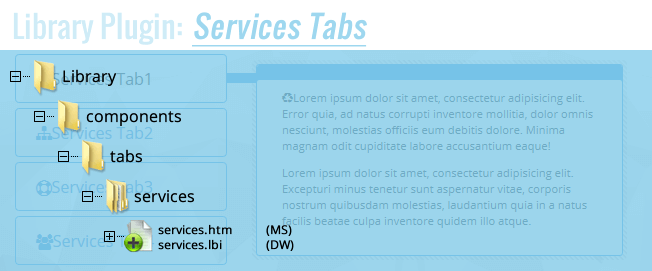The Facts – Part - P and Notification
P of the building regulations was introduced by the government
on January 1, 2005 to protect householders and reduce the risk
of electric shock.
It brought all electrical work carried out in the home under
statutory control - requiring certain jobs to be notified and
signed off by a local building control department, or a
Competent Person Scheme registered electrician (NICEIC), so
that it meets the appropriate safety standards.
Changes to Part P
In 2013 the government announced some changes to Part P.
The range of work notifiable to building control was reduced
(For England only. In Wales some of the regulations still apply).
Under the new, revised regulations, electrical work undertaken in
kitchens such as adding a new socket or installing a new security
light outdoors are no longer notifiable unless a new circuit
is required.
Failure to adhere to Part P
If you cannot provide the right evidence that electrical work has
been carried out in accordance with the building regulations then
your local building control may insist that the work is re-done at
your cost. Additionally, not having the appropriate certification may
cause problems when it comes to selling your home.
It is a criminal offence to carry out work that does not comply
with building regulations with a maximum fine of £5,000.
A straightforward way of meeting the requirements is to use an
electrician who is registered with a competent person scheme such
as the NICEIC . They can self-certify the work and notify the
local building control department on your behalf.
You will then receive an Electrical Installation Certificate (EIC) or
Minor Electrical Installation Works Certificate (MEIWC) from your
contractor confirming the work has been carried out to the required
standard along with a building regulation letter of compliance from
the registered scheme body – NICEIC.
If you require any further information please go to our contact page,
leave your details and we would be more than willing to help.
EICR - Electrical Installation Condition Report
A Domestic Periodic Inspection or Electrical Installation Condition
Report (EICR), is an inspection on the condition of an existing electrical
fixed wiring installation, to identify (in order of priority) any
deficiencies against the national safety standard for electrical
installations.
A Periodic Inspection Report is a check of the fixed electrical wiring
circuits in a property to ensure that they are safe and performing well.
The report you receive includes details of defects and assesses the
performance of the electrical system against the UK standards of safety for
electrical installations.These are set out in BS (British Standard)
7671: 2008 (IEE Wiring Regulations 17th Edition).
The Elecitrical Installation Condition Report details any areas where the
installation falls short of the standard whether it is due to poor
workmanship, age of the system and materials, or other causes. It then
includes a list of recommended repairs or actions needed to make the
installation safe or bring it up to standard
If you require any further information please go to our contact page,
leave your details and we would be more than willing to help.
Electrical Installation Certificate
The Niceic Electrical Installation Certificate is to confirm that the
electrical installation work to which it relates has been designed,
constructed, inspected, tested and verified in accordance with the
national standard for the safety of electrical installations, British
Standard 7671 (as amended) - Requirements for Electrical Installations.
Minor Works Certification
A safety certificate used when only an addition or alteration is made
to an electrical installation and no new circuits have been added.
This safety certificate is issued to confirm that the minor electrical
installation work to which it relates has been designed, constructed,
inspected, tested and verified in accordance with the national standard
for the safety of electrical installations, British Standard 7671
(as amended) - Requirements for Electrical Installations (the lEE Wiring
Regulations).
If you require any further information please go to our contact page,
leave your details and we would be more than willing to help.
Emergency lighting Certification
If your commercial property hasn't had a Periodic Inspection for its emergency
lighting within the last year or is due for an inspection - call us today as
yourlog book could be out of date!
Shops, offices and other premises previously excluded from legislation require
the installation of additional emergency lighting to satisfy the Emergency
Lighting and the New Fire Safety legislation – the Regulatory Reform
(Fire Safety) Order 2005. Not only must premises contain emergency lighting and
escape route signage, the equipment installed must be the correct type, installed in the correct
location and satisfy the requirements of BS 5266.
On completing or change of an emergency lighting system installation, an Emergency
Lighting Test Certificate should be supplied to the occupier/owner of the premises.
A copy of this certificate would be required by the enforcing authority.
Ongoing a yearly inspection of your emergency lighting is required and a new
Test Certificate issued at intervals of no more than 1 year.
If you require any further information please go to our contact page,
leave your details and we would be more than willing to help.
Fire Alarm Certification
From 1st October 2006 The Regulatory Reform (Fire Safety) Order 2005 requires
the Responsible Person (RP) of any non domestic premises to carry out a fire
risk assessment,including measures to reduce or eliminate the risk of fire,
and identify persons at risk. Where there are 5 or more employees, a record
must be kept of significant findings and a definition of a Responsible Person
is contained in the above Order.
There are official guidance documents on www.gov.uk which will assist you in
conducting a fire risk assessment.
Where the RP does not have control of all parts of the building and it is
shared with other persons, they should be informed of significant risks
identified. The person who does have control (landlord, owner, or other employer etc.) has
a responsibility to make sure the regulations are complied with, in the parts
they control.This may require communication and cooperation between parties to
ensure coordination of fire safety provisions, fire fighting measures,
evacuation procedures etc.
If you require any further information please go to our contact page,
leave your details and we would be more than willing to help.
Bespoke Service
We understand that you want electricians working outside normal working hours. We can offer a bespoke service working around your normal working hours. Our Commercial Electricians offer a highly professionally recognized service, tailored to meet your unique individual requirements. Each job is assed by a contracts manager, who will assess your needs and then send you a competative quote.
All our Commercial Electricians are qualified to carry out Electrical Installation, Maintenance and Repair works for the Commercial market, and do so in accordance with 17th edition IEE wiring regulations BS 7671:2008, We comply with Health & Safety regulations under the Electricity at Works Regulations 1989
Our Expert Commercial Electrical Contractors or Approved Electricians can carry out electrical installations in all manner of homes and outlets from hotels, restaurants, salons and shops to factories and warehouses. Services range from full electrical project management to the installation of a single socket.
For further information do not hesitate to contact us
 My Elec
My Elec 



